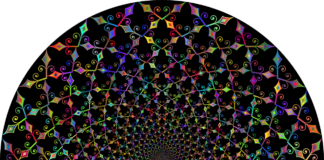Vacuum technology is a specialized field that deals with the manipulation and control of pressure in enclosed spaces to create a vacuum or low-pressure environment. This technology finds applications in various industries, from manufacturing and research to space exploration and everyday consumer products. Here, we delve into the intricacies of vacuum technology, exploring its principles, applications, and significance in different domains.
Basic Principles of Vacuum Technology:
At its core, vacuum technology revolves around the manipulation of pressure within a confined space. A vacuum is created by removing air and other gases from a given volume, resulting in a lower pressure environment. Achieving a vacuum involves the use of pumps and other equipment to evacuate gases, creating conditions that range from low-pressure environments to high vacuums, where the pressure is significantly below atmospheric pressure.
Applications in Manufacturing Processes:
Vacuum technology plays a crucial role in various manufacturing processes. In industries like semiconductor manufacturing, vacuum chambers are utilized for deposition processes, where thin films are applied to surfaces. Vacuum is also integral to heat treatment processes, where specific atmospheres are required to achieve desired material properties without oxidation.
Vacuum Technology in Space Exploration:
The principles of vacuum technology are fundamental to space exploration. The vacuum of outer space itself necessitates the design and construction of spacecraft and equipment that can withstand the challenges of this environment. Additionally, vacuum technology is employed in simulating space conditions on Earth for testing spacecraft components in vacuum chambers.
Medical and Analytical Applications:
In the medical field, vacuum technology is used in a range of applications. For example, vacuum tubes are commonly employed in blood collection to facilitate blood flow into the tube. In analytical instruments like mass spectrometers, vacuum conditions are essential for accurate and precise measurements, as they eliminate interference from air molecules.
Vacuum in Electronics and Semiconductor Industry:
The electronics and semiconductor industry heavily relies on vacuum technology for various processes. During the manufacturing of electronic components, vacuum is essential for creating clean environments free from contaminants, ensuring the quality and reliability of the final products. Vacuum is also crucial in the fabrication of integrated circuits and other semiconductor devices.
Vacuum Packaging in Food Industry:
In the food industry, vacuum packaging is a common application of vacuum technology. This process involves removing air from the packaging to extend the shelf life of food products. By reducing the oxygen content, vacuum packaging helps prevent oxidation and slows down the degradation of perishable items, maintaining their freshness for an extended period.
Scientific Research and Experiments:
Vacuum technology is indispensable in scientific research, particularly in physics and materials science. High-vacuum environments are necessary for experiments involving particle accelerators, electron microscopes, and surface science studies. Researchers use vacuum chambers to eliminate air and study the behavior of materials under controlled pressure conditions.
Vacuum Systems in Consumer Appliances:
Several consumer appliances leverage vacuum technology for enhanced performance. Vacuum cleaners, for instance, use suction to remove dirt and debris from surfaces. Similarly, vacuum sealing devices for home use allow individuals to preserve food by removing air from containers or bags, preventing spoilage and freezer burn.
Environmental and Energy Applications:
Vacuum insulation panels (VIPs) are used in the construction industry for energy-efficient building insulation. These panels utilize the low thermal conductivity of a vacuum to minimize heat transfer, enhancing the energy efficiency of buildings. Additionally, vacuum technology plays a role in certain environmental applications, such as soil remediation.
Challenges and Advances in Vacuum Technology:
While vacuum technology offers numerous benefits, it also presents challenges. Maintaining a high vacuum can be technically demanding, requiring sophisticated pumps and sealing techniques. Advances in materials science and pump technology continue to address these challenges, pushing the boundaries of achievable vacuum levels and contributing to the efficiency and reliability of vacuum systems.
Vacuum technology is a versatile and indispensable field with broad applications across industries. Its principles underpin various processes, from manufacturing and medical applications to scientific research and consumer products. As technology advances, the role of vacuum technology is likely to expand, driving innovation and contributing to advancements in diverse fields.
Vacuum technology, with its diverse applications, underscores its significance in both industrial and everyday contexts. Understanding the principles and applications of vacuum technology is essential for professionals in fields ranging from manufacturing and research to healthcare and space exploration. In manufacturing, the precise control of pressure conditions using vacuum technology enables the production of high-quality electronic components and materials critical for modern technologies. Vacuum’s pivotal role in space exploration is evident in the development of spacecraft and equipment designed to withstand the challenges of the vacuum of outer space.
Medical and analytical applications leverage vacuum technology for various purposes, from blood collection in healthcare settings to ensuring the accuracy of measurements in sophisticated analytical instruments. The electronics and semiconductor industry relies on vacuum conditions to create clean environments during manufacturing, contributing to the reliability and performance of electronic devices. In the food industry, vacuum packaging extends the shelf life of products by reducing oxygen levels, preventing spoilage, and maintaining freshness.
Scientific research benefits immensely from vacuum technology, providing controlled environments for experiments in physics, materials science, and other disciplines. Consumer appliances, such as vacuum cleaners and vacuum sealing devices, integrate vacuum technology to enhance efficiency and convenience in households. The environmental applications of vacuum insulation panels contribute to energy-efficient building insulation, aligning with the broader goals of sustainability and energy conservation.
Despite its widespread use, vacuum technology poses challenges, particularly in maintaining and achieving high vacuum levels. Advances in materials science and pump technology continue to address these challenges, pushing the boundaries of achievable vacuum conditions. Ongoing research and innovation in vacuum technology are crucial for further improvements, ensuring that the technology remains at the forefront of advancements in science, industry, and everyday life.
As the world grapples with challenges related to sustainability and energy efficiency, vacuum technology emerges as a valuable ally. Its role in creating cleaner processes, preserving resources, and contributing to scientific discoveries positions it as a cornerstone in the ever-evolving landscape of technological progress. In the coming years, as demands for precision, efficiency, and environmental responsibility increase, vacuum technology is likely to play an even more integral role across a spectrum of industries and applications.














